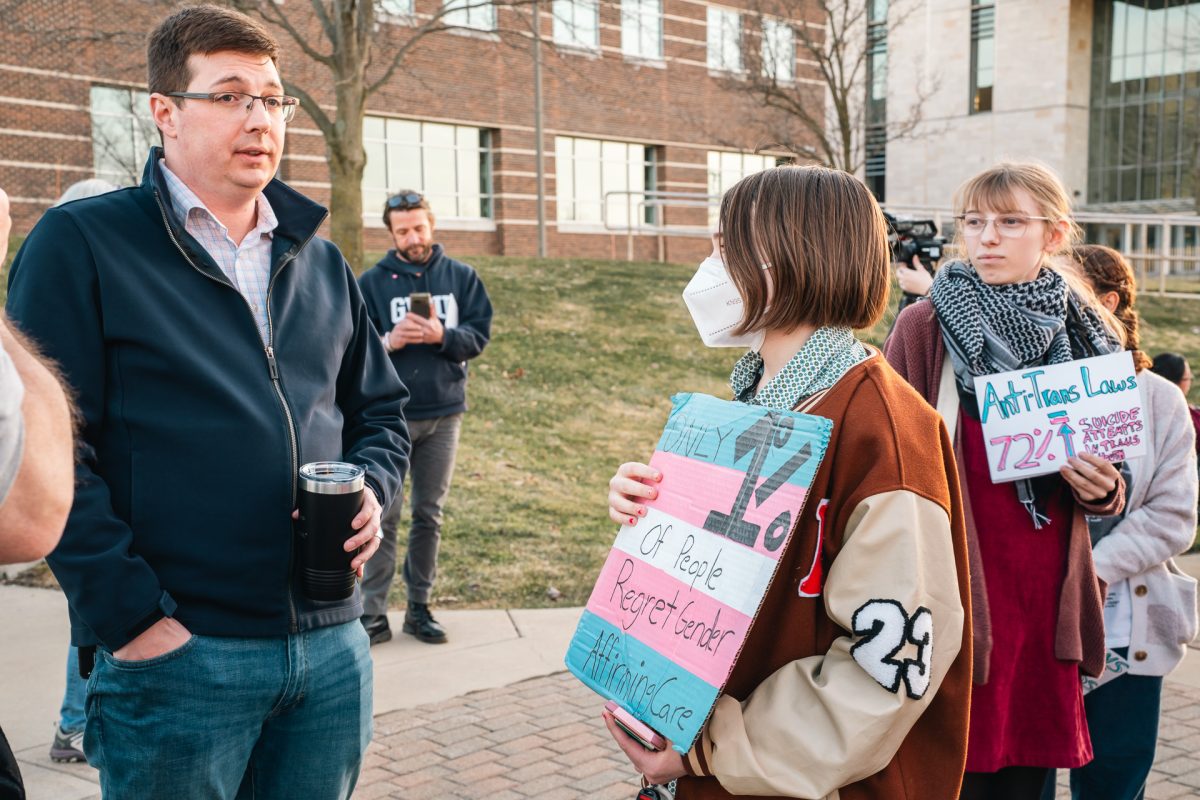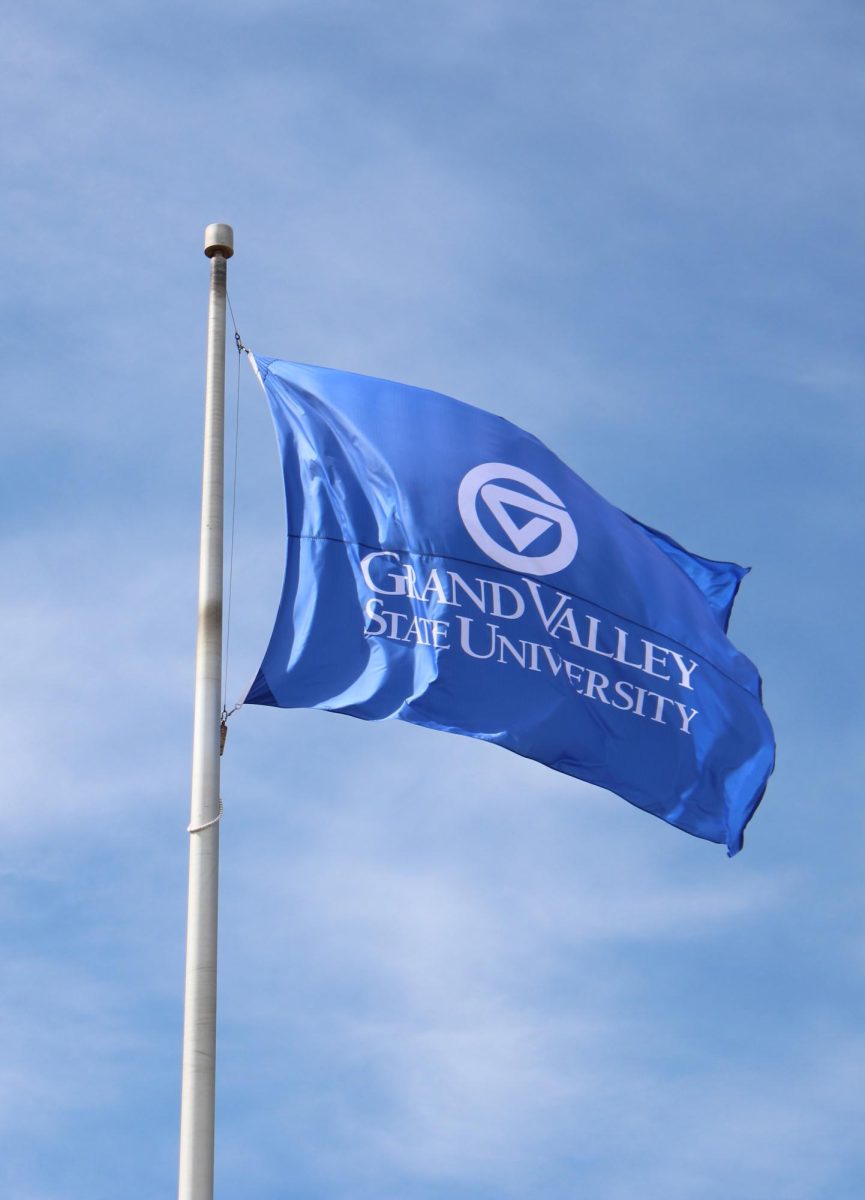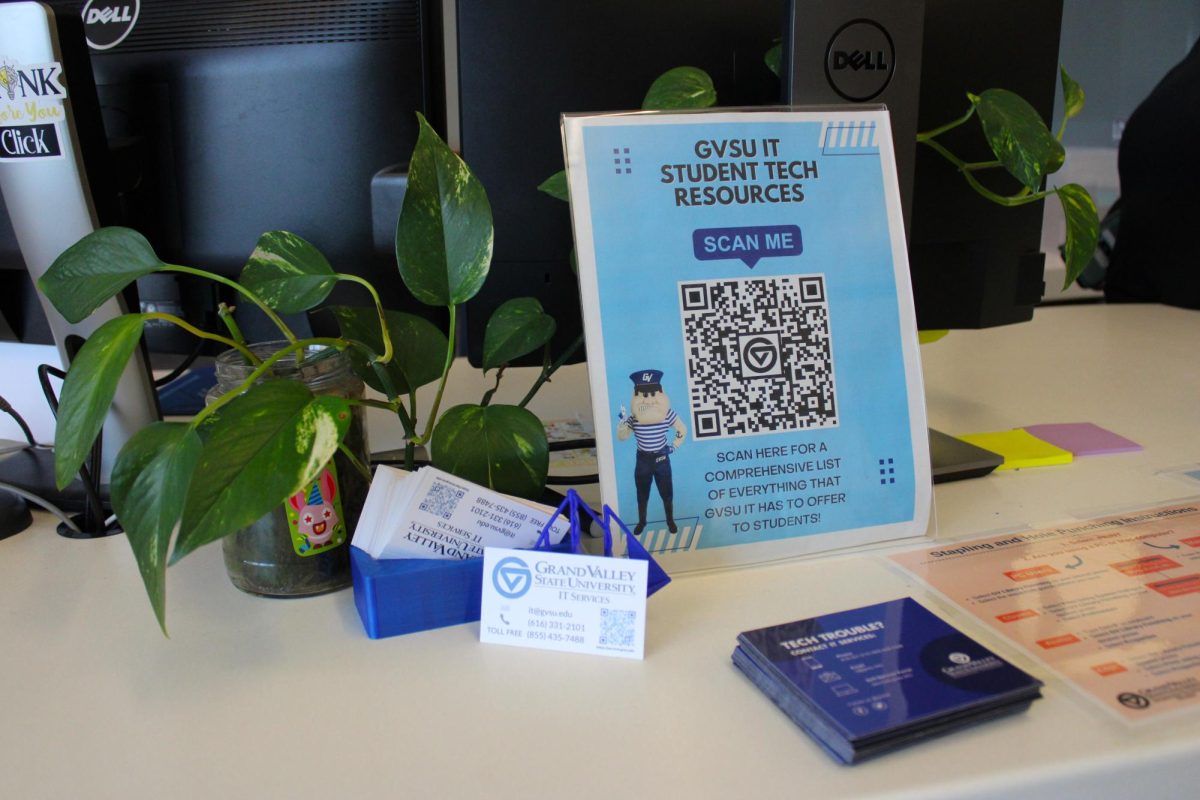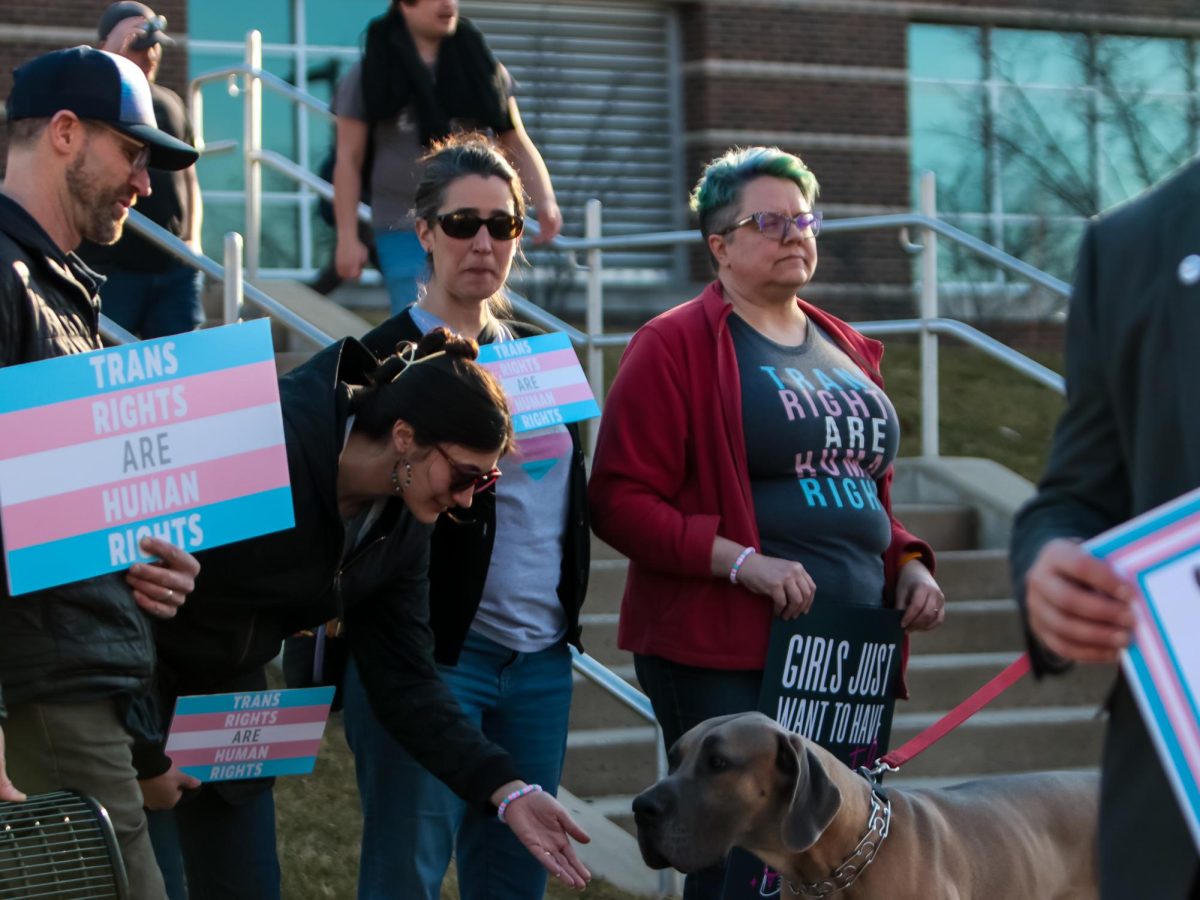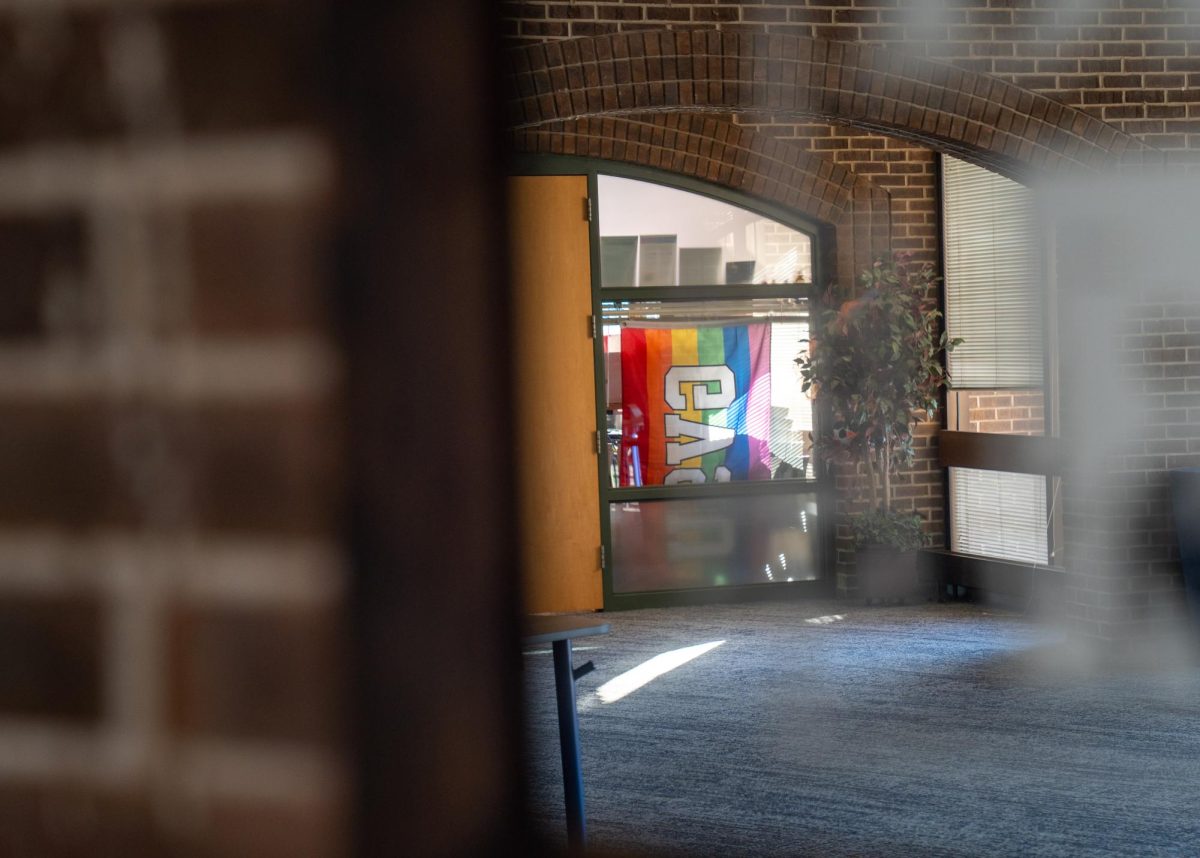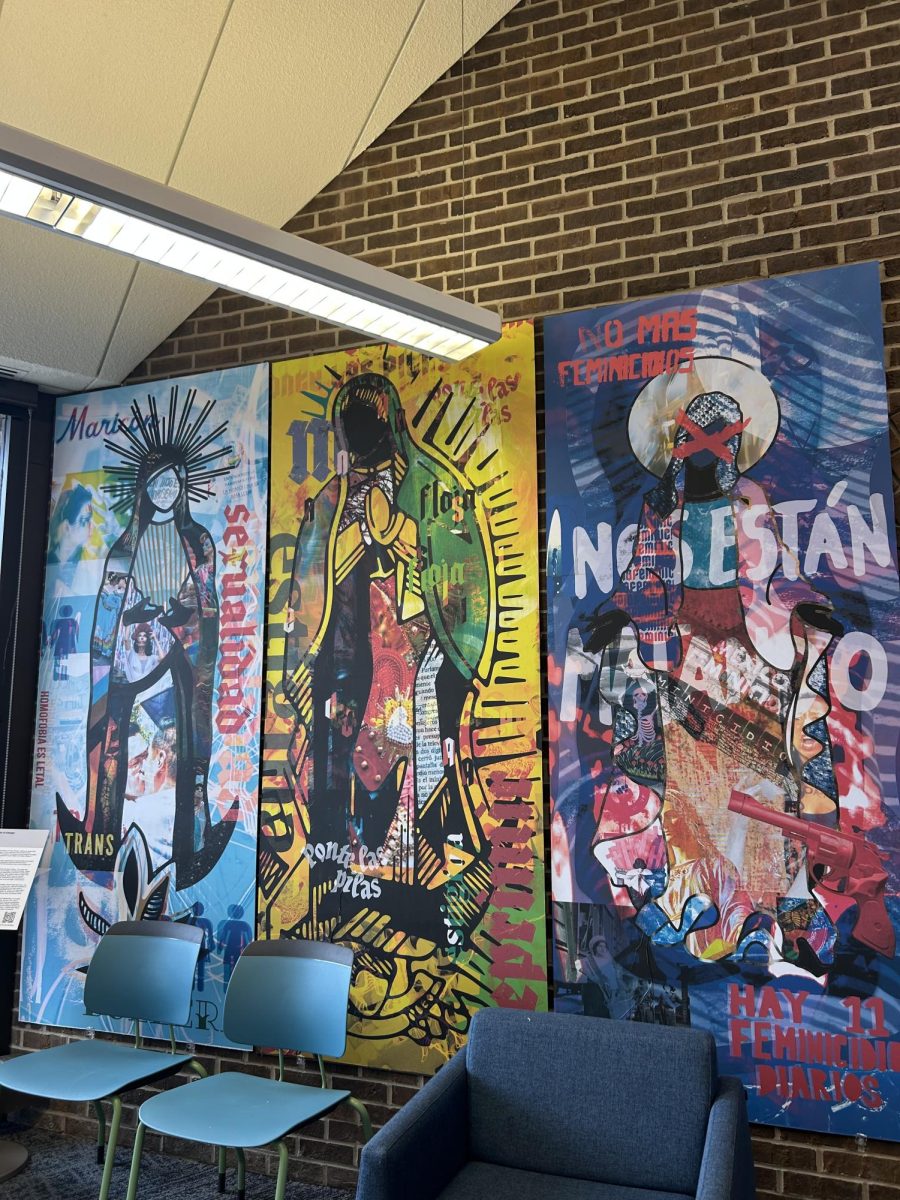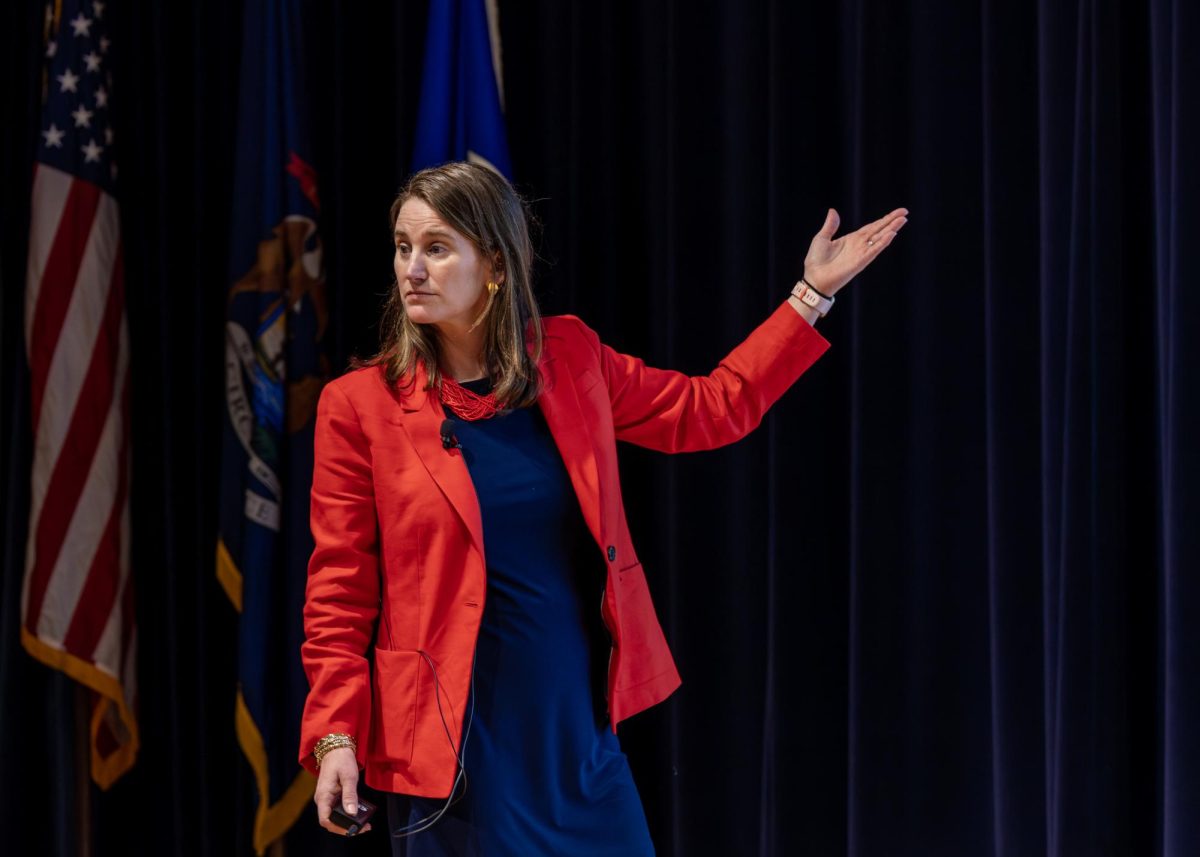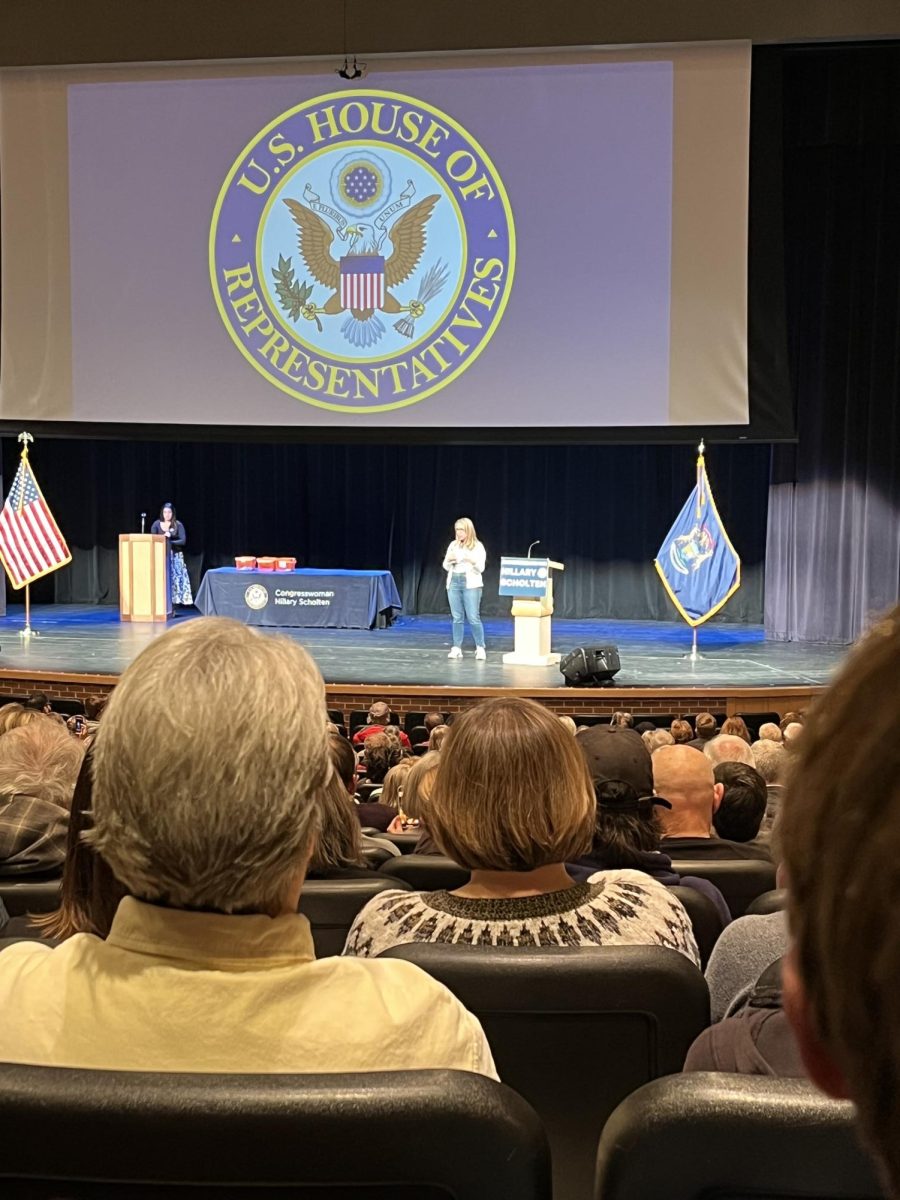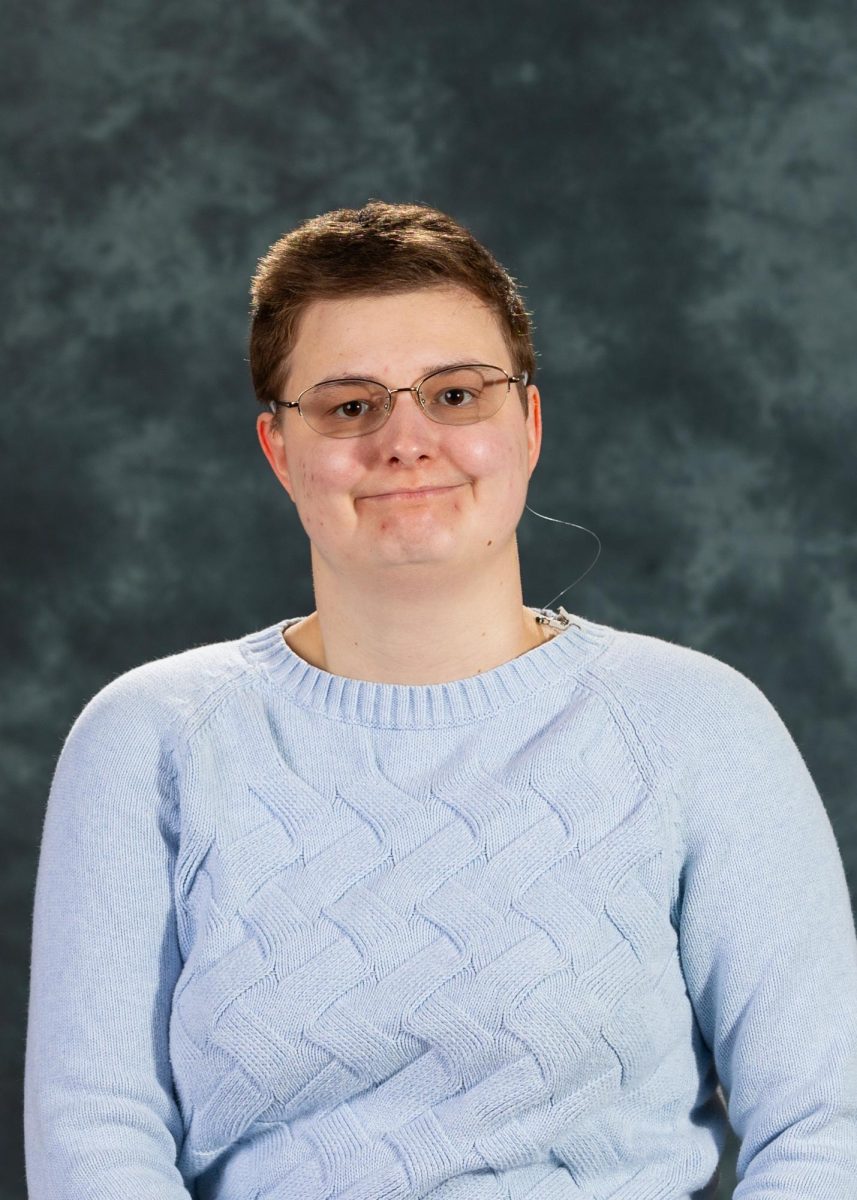In their end-of-year newsletter, members of the LGBT Faculty and Staff Association (LGBT FSA) at Grand Valley State University reflected on LGBTQIA+ issues in the campus’ culture. A member survey illustrates trends in opinion regarding the University’s inclusivity, revealing persistent issues among faculty and staff with disregard of pronouns and identifiers. Several responses called out the University’s Senior Leadership Team (SLT) for lack of cooperation and communication, including denying LGBT FSA a mechanism for advocacy work.
LGBT FSA is an affinity group at the University that works to foster a safer and more inclusive environment for lesbian, gay, bisexual and transgender faculty and staff members. The group analyses policies and practices at GVSU, and promotes programs that support LGBTQIA+ workers.
Their newsletter included results of a survey that was sent out to LGBT FSA members, which allowed faculty and staff to express their successes and challenges of existing on campus. 52 members of the LGBT FSA responded to the survey, 80% of which advocated for a more inclusive and equitable campus climate. The results show a strong desire for more inclusivity among staff toward LGBTQIA+ individuals. Significant grievances expressed in the survey regarded faculty being “deadnamed,” using someone’s birth name rather than their preferred name, and the misuse or disregard of pronouns.
Common responses disclose that faculty members are continuously deadnamed and misgendered by colleagues, or have witnessed students receiving similar treatment from their professors. Alongside discrimination based on sexuality and gender, “managerial racism” and other forms of racial discrimination were also mentioned in some survey responses. Although the responses broadly advocated for more inclusivity, the majority emphasized the mistreatment of faculty and staff who identify as transgender or nonbinary.
“I’d love to see the entire campus community more comfortable and accurate with pronouns,” said one anonymous survey respondent. “I have several colleagues who use they/them, and it’s frustrating to see how often folks misgender them.”
Kyle Felker, the steering committee chair for LGBT FSA, said the treatment of trans and nonbinary employees may be a result of the current political climate, the spread of misinformation and fear-mongering.
“Looking at (the FSA survey results) in conjunction with a majority of the data we already had, I don’t think there were a lot of surprises,” Felker said. “I think it confirmed a lot of the things that we had already suspected.”
The organization also advocates for accountability from SLT to prevent further discrimination based on sexuality or gender. In relation, an anonymous survey respondent noted a “lack of urgency for LGBTQ+ issues by SLT.”
“There are so many things that could be done, ranging from high-level changes to policy and administrative processes, education and training for faculty, staff and students (and) interventions at the unit or department levels,” said AJ Young, the communications coordinator for LGBT FSA. “The most important thing GVSU could do is to actively solicit feedback from the LGBTQIA+ community at (the University), and bring us into substantive roles in the decision-making process about what happens on campus.”
In August 2022, the Higher Education Data Sharing Consortium (HEDS) visited GVSU to gather data on the experiences of LGBTQIA+ faculty and staff. The data that HEDS collected exhibited a similar trend to LGBT FSA’s survey; those who identified as lesbian, gay and queer had better experiences on campus than those who identified as transgender or nonbinary.
D. Hollowell, the assistant director of the Milton E. Ford LGBT Resource Center, said they would love to see a look beyond the data into the infrastructural, cultural and managerial manifestations of intolerance.
“Michigan, as a state, has made some pretty incredible strides towards LGBTQIA+ legal protections and streamlined identity document updates,” Hollowell said. “I’m really counting on GVSU to match that pace, ensuring that employees don’t experience a labyrinth of prejudice, and instead are bolstered by robust support. I’m hoping some of the resources on campus, like the Title IX office, MyName, LGBT FSA and, of course, the LGBT Resource Center, can help make that possible.”








